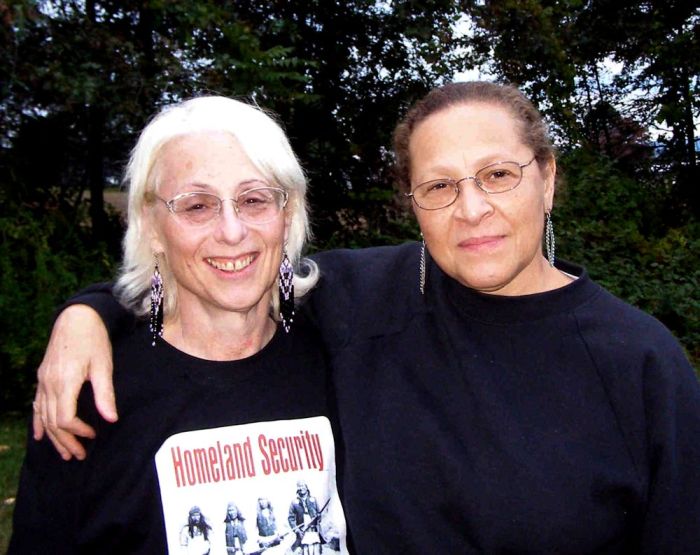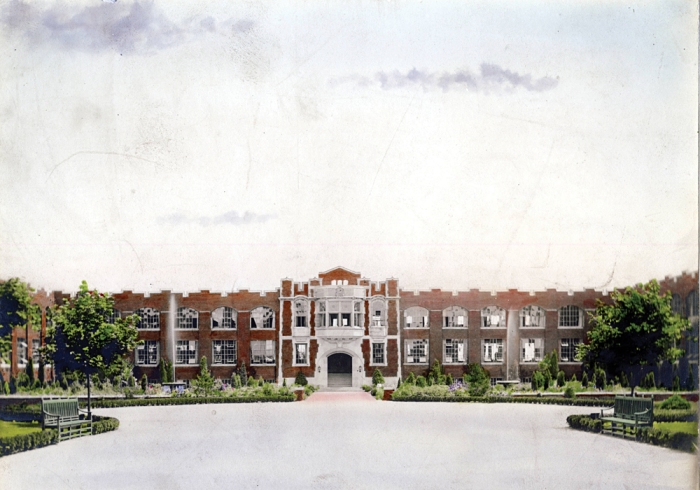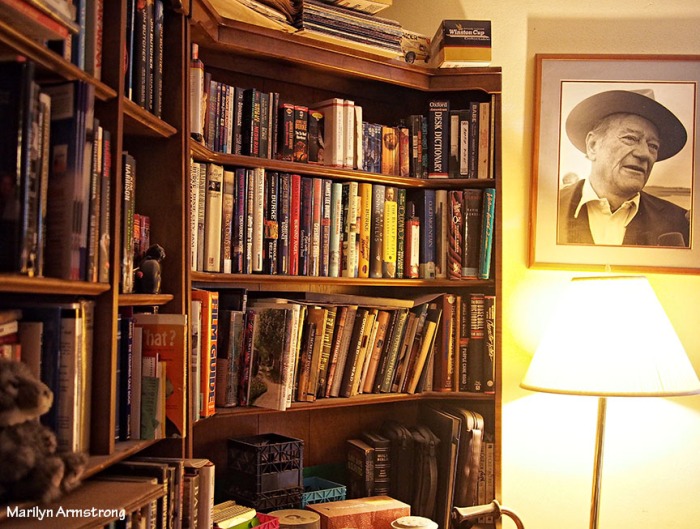I usually say I wouldn’t want to ever work again, but I got to thinking about that. I realized if I could get back my job as editor at Doubleday? I’d do it in a heartbeat. How many jobs give you unlimited sick days, two-hour lunches, and require you to read sleazy novels during the day? And pay you for the privilege? And give you the best bunch of people as colleagues you could hope for.
I also had to write stuff about the books I read, but a long review was still shorter than any of the pieces I write for this blog. Even in my crumbling state of health, I think I could handle it.
The trouble is, the job doesn’t exist. Publishers are thoroughly conglomerated. Each is a subsection of some über corporation where books are one of many products — and not an important product, either.
The 1970s were wonderful years for reading. It was a tremendous period for books and book clubs — and for literature as an art. In those days, reading was major entertainment. People read books and talked about them by the water cooler. If you got excited about a book, you told all your friends … and they read it, too.
Before the internet.
Before cell phones.
Before cable and satellite television.
Before computers and many years before WiFi …
We had books.
Other entertainment? Of course there were movies, but you had to see them in a movie theater. Television was there, but it had limitations. We had — in New York which was entertainment central — seven channels. Unless you had a really good antenna on the roof, you rarely got a clear picture. There was interference called “snow.” Pictures rolled — up, down, and side-to-side. Vertical and horizontal holds on your TV were designed to help control it. Sometimes, they did, but I remember many nights of giving up and turning the set off because we couldn’t get a decent picture. Meanwhile, many of us used a set of rabbit-ear antennas that worked sometimes — if the wind was blowing due west.
I spent more time trying to convince the rabbit-ears to receive a signal than watching shows.
Not surprisingly, television wasn’t our primary source of entertainment. Instead, we read books — and we talked to each other — something we old folks continue to do. Sometimes, we had conversations that lasted for hours and in my life, occasionally ran into weeks. Blows your mind, doesn’t it? All that talking without a phone? Without texting, either.
Books were big business. If you wrote anything reasonably good, there were more than enough publishers who might be interested in printing it. I miss that world, sometimes more than I can say.
All of this got me thinking about how hard it is to get books published these days. So many people I know have written really good books and have never found anyone to back them. It’s rough on writers, and it’s not a great sign for the art of literature. Not only has our political world caved in, but our literary world is sliding down a long ramp to nowhere. In theory, many more books are published today because anyone can publish anything — and sell it on Amazon. All books — the great, good, mediocre, and truly awful are lumped together. Most of them are rarely read since none of them are being promoted by a publisher. This isn’t a small thing. Publishers were a huge piece of what made books great. If your publisher believed you’d written something excellent, you could count on being visible on the shelves of bookstores everywhere. You’d also be part of book club publications. People — reading people — would see your book. There were book columns and reviews — and people read them they way they read stuff on upcoming television shows today.
Of course, we are also suffering from the vanishing bookstore … a whole other subject.
A great idea followed by a well-written manuscript was just the beginning of a book’s life story. From the manuscript, publishers took books and did their best to sell them to the world. Today, all that pushing and pitching is left to authors, including those whose books typically sell well.
Can anyone imagine how Faulkner, Hemingway and Thomas Wolf would do trying to “work the marketplace”? No doubt there were writers who were able to do the balancing of writing and marketing, but many authors are not particularly sociable. A good many are downright grumpy and a fair number are essentially inarticulate. They are not naturals to the marketing gig.
And … ponder this … what kind of blog do you think Faulkner … or … Eugene O’Neill … would have written?
I miss books. I miss authors. I miss publishers. I miss carefully edited manuscripts and beautifully published books where you could smell the ink and paper as you cracked the cover open. It was a heady perfume.
Categories: #Photography, #Writing, Arts, Author, Books, Entertainment, Publishing





You know what I’ve discovered in the last few weeks dealing with my rage and disillusionment over just this thing? My favorite part of the whole process might be designing a book. The little collection of short stories I’m putting out was fun to put together, some of the stories are really good, but my favorite part was designing the cover. I do not think I’ll be putting my work in front of some dumb ass agent who is equally likely to insult as she/he is to ignore me. My work is in local libraries and bookstores. People around me love my books. I decided that there is no reason in the world that I, a talented, responsible, articulate artist, a real writer, should toss my pearls before swine. I know what a good book is and I know I have written three. 🙂
LikeLike
You’re right. They ARE swine. But they weren’t always. They used to really care about books and I miss that.
I love your writing. And I loved designing my book because I had the tools and I love design. But I hated every sales pitch I ever made to everyone. Each time I had to do it, I had a mental ritual to go through before I could even try. Sometimes, I did okay. Often, I was bad, sometimes terrible. I don’t think anyone could force me to do it again.
LikeLiked by 1 person
You know, I started pitching Martin of Gfenn in 1998 or 9. It was a different world, even then. You mailed queries. You got answers. In earlier days, pitching short stories, it was even better. I sent a long-lost story to the New Yorker and it made it to the 3rd or 4th reader. The person BEFORE the person who rejected it wrote on the rejection slip “I LOVED this story! Don’t give up.” I think those editors and publishers took real joy in reading a good story. Now the readers are going to make the determination, I think. It’s going to be different. The library in the “city” (Alamosa) bought my books maybe because I’d won their literary contest and they wanted the books of a winner in their library or because friends hearkened to my call “demand your library order my books” and they’ve been checked out and read. I’ll take that because — as you wrote — most writers write. I think marketing was easier back in the days of serialized stories in magazines — Dickens and Balzac and Dumas did PR that way and on lecture tours. I dunno. It’s just NOT that world but I’m going to write MY stories and then enjoy making beautiful books from them. 🙂
LikeLike
It’s true. We worked at publishing because we really loved books. But it’s not like that now. It’s big corporations that own what used to be publishing houses, but they aren’t interested in books, just in making a lot of money … and books don’t make that much money these days. They don’t publish much and they want everyone to write serials and they are also very big on trying to control what people write so it fits into whatever “slot” they assigned you. It’s NOTHING like “the old days.”
It IS probably more fun getting involved in the book design. That is, at least, fun.
LikeLiked by 1 person
Back in the late 90s early 2000s I had a couple agents tell me, “I love your story, but I don’t think I we can sell it to anyone.” That was Martin of Gfenn, a book my neighbor read. When she returned to me she held it to her heart and said, “I loved this so much.” That’s the purpose of a book. That’s why I write — entertain but for other reasons, too. A book is a window. Or, as Emily Dickinson said, “A frigate.” God, I think of how lonely I would have been these past 20 years if I had not read Goethe’s Italian Journey. But you know all this. 🙂 ❤
LikeLike
There is a part of me that truly appreciates the fact that i could write and edit a book on my personal computer/laptop, spell and grammar check it, add any photos or references i want, send it to a proof reader for checking and improving the style/readability, publish it on the web and have millions of people download it and hopefully read and enjoy it without any tree being chopped up for the paper pulp or without any need of diesel burning vans or trucks to deliver it to a retailer.
But i’m not entirely sure all that is worth losing books and bookstores?
love.
LikeLike
It’s a hard call to make. I like having some books — those by particular favorite authors. But for actual reading? The Kindle wins. It weighs very little …. and it doesn’t need a light.
LikeLiked by 2 people
Sadly though – we no longer are the ones making the call. Amazon (et al, et A I?) is here to stay. 🙂
love.
LikeLike
Wow!! What a great job at Doubleday! I’d take that job next year after retiring from my current job and work until age 70! Wish there were more jobs like that today. My eyes don’t work well anymore so I download books to my Kindle so I can enlarge the text or get those Audio Books.
Just curious. Did you ever get the chance to meet or see Jacqueline Kennedy? I read somewhere that she worked at Doubleday.
LikeLike
The answer to your last question is sort of yes, “in an elevator, between floors.” I don’t think it counts. And that was in the fancy Manhattan offices, not Garden City.
Those jobs were typical for publishing in those last years before everyone conglomerated with everything else. I don’t think any of those jobs still exist. I wish they did.
LikeLike
When I moved to this area twenty years ago, there were a number of proper independent bookstores and a couple of the big name, books-and-more stores.I had to be frog-marched past one or two of them or they would suck me in and I’d be lost for hours. Only the big names survive and they sell far fewer books…mainly just the bestsellers and educational products. No reason to go in and browse.
LikeLike
It is such a disappointment. Even a decade ago, it was a great place to take my granddaughter. She loved the children’s book section. That’s still there, but the rest of the store … hardly any books and certainly nothing unique. We have ONE local book store a couple of towns away. Otherwise, just the big store at the mall.
LikeLike
You can’t beat the magic of the little secondhand bookshops but they are gone too now.
LikeLike
Borders book store, which was a huge second hand store in Boston closed more than 15 years ago. That was really sad. It was one of those stores you could haunt for days.
LikeLike
There was a wonderful one…that smelled just right… in the town when we moved here. That too must have gone fifteen years ago.
LikeLiked by 1 person
good article
LikeLiked by 1 person
Bookshops are disappearing at a great rate. We had four or five large ones in the Hobart CBD 15 years ago plus the book departments in the bigger stores. A lot for a small city. Now there are only two of the original ones left although we get a lot of pop up book shops and there are still three large second hand bookshops in the city that I know of. At the Op Shop where I volunteer we are given so many books we can’t fit them in to our book area and I have to cull them regularly or we’d have people tripping over boxes of books. They don’t sell at garage sales and markets so people just donate them.
LikeLike
There are none in Uxbridge. Almost none in Boston, either, and that was a very bookish city. We have Barnes & Noble, but they don’t have book as much as they have CDs and DVDs and games and bookbags and toys. They’ve forgotten about books and I miss them. I don’t miss reading big heavy books, though. My wrists are gone and books are too heavy. I still love the smell, though.
LikeLiked by 1 person
I was employed as a Librarian during the late 1970s as such I was able to indulge my love of books every day. Now I just buy books. I could get them on my kindle fire but I like the feel of a book. I like the smell of new books and if you fall asleep reading one you can not crack the screen when it falls out of your hand. My favorite person in the world loves to read too so I still have someone to talk books with and share the “you have got to read this” moments with.
LikeLiked by 2 people
I listen to books rather than read them. My eyes don’t like print so much any more. I love books still, but i absorb them differently.
LikeLiked by 4 people
I don’t have the patience to have someone read to me. I like to devour a book instead of taking tiny bites of it which is what it feels like when I am listening to it.
LikeLiked by 1 person
I remember as a young person (16 yrs) reading Ivanhoe by Sir Walter Scott to my mother and her reading it to me. We would take turns and it was memorable.
Leslie
LikeLiked by 1 person
That’s how I taught Kaitie to read. I read. One day, she asked if she could read to me.
LikeLiked by 1 person
It was a shared experience and very memorable.
Leslie
LikeLike
It was one of my really satisfying grandparent moments.
LikeLike
When I was younger I read to my children and they read to me it was enjoyable. But now if I get a book it is because I really want to read it. The slow stately process of having it read to me have me going “come on what happened next!” that kind of stress not good when you should be enjoying the book.
LikeLiked by 1 person
I’m a very fast reader, so for me, the slowing down is a good thing. I don’t realize I’ve out-read the contents.
LikeLiked by 1 person
I am a fast reader too but I also can tell you what I read up to the place that I stopped. My reading partner was a teacher so I still give book reports so even though I read fast I must retain content info. He keeps me on my toes because if he decides he is not going to read the book for himself I still need to tell him what I liked about it and share the characters and their quirks.
LikeLike
I read to our children too when they were young. It was the experience of reading such fine literature aloud with my mother.
Leslie
LikeLiked by 1 person